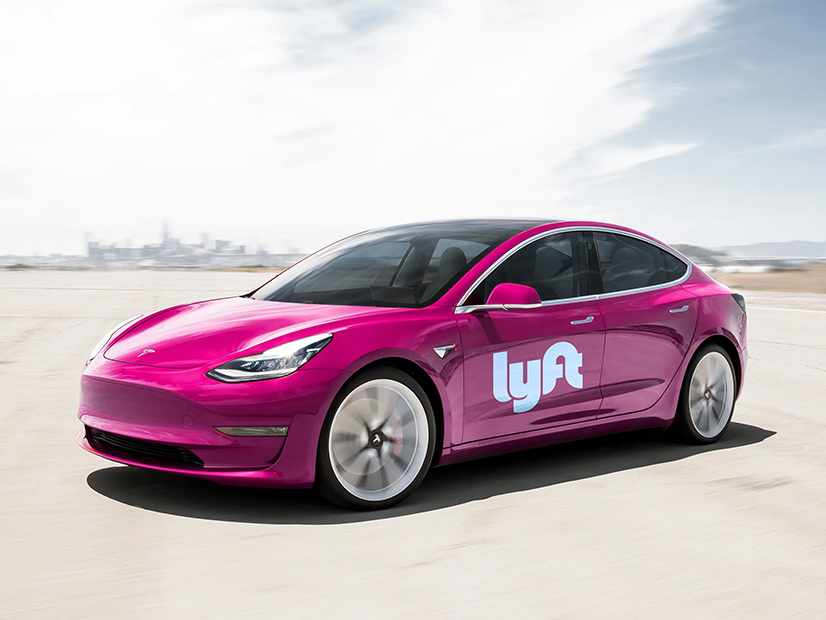A measure to tax high-income Californians to provide a dedicated funding source for electric vehicle rebates and charging recently qualified for November’s ballot, with most of its financial support coming from ridesharing service Lyft (NASDAQ:LYFT).
Proposition 30, the Clean Cars and Clean Air Act, is intended to reduce greenhouse gas emissions, according to proponents. If passed by voters, the measure would assess a 1.75% tax on individuals and couples with more than $2 million in annual income, raising up to $4 billion a year.
Nearly half the revenues would go toward rebates and incentives for zero-emission vehicle purchases, while 35% would fund ZEV fueling and charging stations. At least half of those funds would benefit low-income households and communities.
The rest would pay for wildfire prevention and suppression. Hiring and training firefighters would take priority.
“To achieve the state’s carbon goals and avoid the worst impacts of climate change, action is needed now regarding two of the largest sources of greenhouse gas emissions in our state: transportation and wildfires,” the measure says.
The California secretary of state’s office reported the initiative had qualified for the ballot June 28, after proponents submitted 720,238 valid signatures, about 100,000 more than required.
Lyft’s involvement has caused some to call the measure a corporate giveaway in disguise. The company has contributed $8 million of the $8.4 million raised so far in support of Prop. 30.
Ridesharing companies in California must “ensure 90% of their vehicle miles are fully electric” by 2030 under the Clean Miles Standard adopted last year by the California Air Resources Board. Drivers for companies such as Lyft and Uber are independent contractors who drive their own vehicles, leaving in question who will pay for their switch to EVs. Prop. 30’s rebates and incentives could help.
Even though the state has dedicated billions of dollars to transportation decarbonization, EV rebates, especially for middle-class drivers, have not been as well funded as advocates think is necessary to meet Gov. Gavin Newsom’s mandate that all new cars sold in-state must be ZEVs by 2035. (See Calif. to Halt Gas-powered Auto Sales by 2035.)
The ballot measure would establish a dedicated revenue stream for rebates, including for Lyft drivers.
“We’re supporting the Clean Cars and Clean Air Act because we’re committed to accelerating the transition to clean vehicles in order to reduce air pollution in California and curb climate change,” Lyft said in a statement. “To meet our state’s bold climate goals, we must do more to help people afford zero-emission vehicles and develop a more robust and convenient charging network.”
Lyft committed in 2020 to reach 100% electric vehicles using its platform by 2030.
“We have no plans to require drivers to switch to EVs,” the company says on its website. “Instead, we believe we can help make driving an EV a profitable choice and are committed to helping drivers transition to these types of cars over time” by expanding its vehicle rental program and promoting cost savings by switching from gasoline-powered cars to EVs.
“Combining lower fuel costs with affordable rental rates, we anticipate that individual drivers can save hundreds of dollars per month, and thousands of dollars per year, on fuel costs alone,” Lyft said.
Earlier this year, environmental, labor and business groups joined together to form Clean Air California, the group backing the measure, to which Lyft contributed.
The Clean Cars and Clean Air Act will “provide consumer subsidies to make electric vehicles more affordable and accessible, particularly to low- and middle-income Californians,” Mary Creasman, CEO of California Environmental Voters, and Joel Barton, secretary-treasurer of the State Association of Electrical Workers, wrote in a joint opinion piece supporting the initiative and touting the formation of Clean Air California.
The initiative would “develop zero-emission vehicle charging infrastructure in residential, commercial and public spaces so that driving a ZEV is as convenient as driving a gas-powered car,” they wrote.
Jon Coupal, president of the Howard Jarvis Taxpayers Association, said revenues for the EV transition should come from the state general fund, which has a record surplus this year, and not from additional taxes. He said he believed the initiative was meant to help ridesharing companies at the expense of taxpayers.
“I think that’s certainly the case,” he said.
Opponents will likely make the corporate-giveaway argument in television ads, which tend to proliferate starting in September, he said. The ballot measure could meet with opposition from voters concerned about raising taxes, even on the wealthy, for fear that they’ll be next, he said.
Progressives “are coming after other revenue sources,” he said. “This Lyft initiative is an example of that.”



